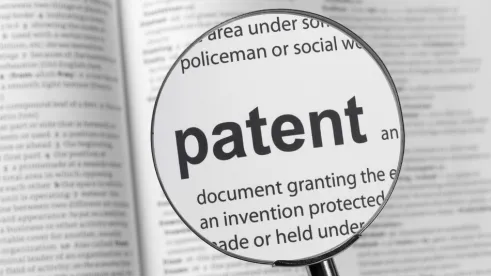In its March 13, 2020 decision in Communications Test Design, Inc. v. Contec, LLC, the Federal Circuit highlighted the obstacles that an accused infringer faces in filing a declaratory judgment action. In particular, the Federal Circuit held that district courts may refuse to hear declaratory judgment actions filed while licensing negotiations are ongoing. The court reasoned that dismissing such cases is consistent with the policy of promoting “extrajudicial dispute resolution.” Ironically, however, the decision in Communications Test Design is likely to have the opposite effect—discouraging alleged infringers from entering into negotiations for fear of losing the ability to file a declaratory judgment action. The decision is also likely to place more control of both the negotiations and litigation in the hands of the patent owner.
The factual background of Communications Test Design is fairly typical. In September 2017, Contec, Inc. accused Communications Test Design, Inc. (“CTDI”) of infringing two Contec patents. Slip Op. 3. The parties communicated for a year about the patents and the alleged infringement. Id. In September 2018, Contec threatened litigation if licensing negotiations did not rapidly advance. Id. Then, on September 19, 2018, the CEOs of the two companies spoke, exchanged ideas on possible licensing terms, and agreed to speak again in a week. Slip Op. 4. In the interim, CTDI filed a declaratory judgment action in its home venue, the Eastern District of Pennsylvania. Id. CTDI notified Contec of the action, but did not serve the complaint. Id. CTDI also indicated that it was willing to continue with licensing negotiations. Id. In response, Contec filed an infringement suit in its home venue, the Northern District of New York. Id. at 5.
Contec moved to dismiss the declaratory judgment action, arguing that it was filed in bad faith. Slip Op. 5. In particular, Contec argued that CTDI had “induced” Contec to delay filing an infringement suit in favor of licensing negotiations. Id. The district court agreed, finding that CTDI’s actions were “nefarious.” Id. at 6. The district court thus refused to exercise jurisdiction over the declaratory judgment action based on three factors: (i) the action was filed in anticipation of the later infringement suit; (ii) the action was filed while licensing negotiations were pending; and (iii) New York is a more convenient venue because Contec and the inventors are located in that venue. Id.
The Federal Circuit affirmed on appeal. The Federal Circuit first stressed that district courts have “broad discretion” to refuse to hear declaratory judgment actions. Slip Op. 8. In instances where a patent owner has filed a subsequent infringement suit, district courts enjoy a “double dose” of discretion due to the “first-to-file” rule. Id. at 10. In particular, while the “general rule” is that first-filed actions are “preferred,” a court has discretion to defer to later-filed actions “in the interest of justice or expediency.” Id. at 9.
In this case, the Federal Circuit agreed that dismissing the declaratory judgment action in favor of the later-filed infringement suit was proper. The Federal Circuit reasoned, in particular, that declaratory judgment actions filed during pending licensing negotiations are disfavored. The Federal Circuit explained that “the need for judicial relief [in such cases] is not as compelling as cases in which there is no real prospect of non-judicial resolution.” Slip Op. 13. Moreover, dismissing a declaratory judgment action during the pendency of licensing negotiations is consistent with “the policy promoting extrajudicial dispute resolution, not to mention sound judicial administration and the conservation of judicial resources.” Id. at 14.
The Federal Circuit also cited the district court’s holdings that the declaratory judgment action was filed in anticipation of Contec’s infringement suit and that New York was a more convenient forum due to the presence of Contec and the inventors. These factors, however, would appear to be present in the vast majority of cases where an accused infringer files a declaratory judgment action. That is, an accused infringer typically files a declaratory judgment suit because the accused infringer expects litigation and wants to select the venue.
Key Takeaways
In light of Communications Test Design, an accused infringer must proceed cautiously with pre-suit licensing negotiations if it anticipates the need to file a declaratory judgment action. Before seeking a declaratory judgment action, the accused infringer should consider the status of any licensing negotiations and, if necessary, clearly communicate to the patent owner that negotiations have come to an end. Moreover, from the outset of negotiations, the accused infringer should consider making an unambiguous reservation of rights stating that any negotiations will be without prejudice to seeking judicial relief. In any case, the Federal Circuit’s decision nonetheless places considerably more control of the negotiations and the timing and location of subsequent litigation in the hands of the patent owner.




 />i
/>i

